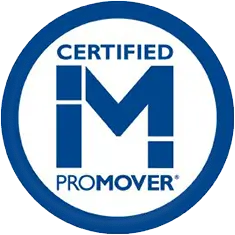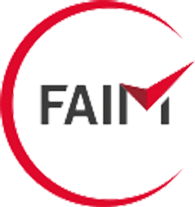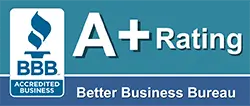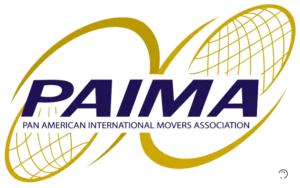Moving to a new country can be an exhilarating yet daunting experience, especially when it comes to navigating immigration processes and settling into a new environment. The United States, known for its diverse cultures and opportunities, attracts thousands of newcomers each year. This article provides essential tips on understanding the immigration process, preparing for your move, settling in during your first few weeks, and navigating American culture.
Understanding the Immigration Process
Understanding the immigration process is crucial for those looking to relocate to the USA. The journey may seem overwhelming, but being informed can make it manageable.
Different Types of Visas
There are various visas available for individuals seeking to enter the United States, each catering to specific circumstances. The most common types include:
- Family-Based Visas: These are for individuals who have relatives that are U.S. citizens or lawful permanent residents.
- Employment-Based Visas: These visas are for those who have an offer of employment in the U.S.
- Student Visas: For those planning to pursue their studies in the USA.
- Tourist Visas: Short-term visas for individuals wishing to visit the U.S. for leisure or business.
Each visa type has its own eligibility criteria and application process, so it’s essential to research which one fits your situation best. Additionally, there are specialized visas such as the Diversity Visa Lottery, which provides an opportunity for individuals from countries with low immigration rates to the U.S. to apply for permanent residency. Understanding these nuances can help applicants make informed decisions about their immigration journey.
Application Process for Visas
The application process for obtaining a visa can be lengthy, requiring careful preparation and attention to detail. It generally involves the following steps:
- Determine the right visa category.
- Complete the appropriate application form and pay the filing fee.
- Gather required documents, such as birth certificates, employment letters, and financial statements.
- Schedule an interview at the U.S. embassy or consulate.
- Attend the interview and present your application materials.
It is advisable to start this process well in advance of your planned move, as delays can often occur. Furthermore, applicants should be prepared for potential follow-up questions during the interview, which can range from inquiries about their background to their plans in the U.S. Being well-prepared can significantly enhance the chances of a successful application.
Legal Requirements and Documentation
Understanding and fulfilling the legal requirements is vital before moving to the USA. Essential documents you may need include:
- Passport valid for at least six months beyond your intended stay.
- Visa approval notice.
- Records of vaccinations and medical examinations, if required.
- Proof of financial stability and ties to your home country.
Having all the necessary documentation and understanding the legalities will significantly ease the process of moving. Additionally, it is important to be aware of any changes in immigration laws or policies that may affect your application. Keeping abreast of these updates can help you avoid unexpected complications and ensure a smoother transition into your new life in the United States. Seeking advice from immigration experts or legal professionals can also provide valuable insights and assistance throughout the process.
Preparing for the Move
Once you have a clear understanding of the immigration process, the next step is preparing for your move. This preparation encompasses various factors including finances, housing, and healthcare.
Cost of Living in Different States
The cost of living can vary drastically from one state to another in the USA. Factors such as housing, transportation, and groceries can significantly impact your budget. States like California and New York typically have higher living costs compared to states like Texas and Florida. Researching the specific costs associated with the area you plan to move to is crucial to effective budgeting. Additionally, consider other expenses such as utilities, internet, and local taxes, which can also differ widely based on your location. For instance, while you may find affordable housing in a particular city, the overall cost of living could still be high due to steep utility rates or transportation costs, especially if public transport is limited.
Housing and Accommodation
Securing housing before you arrive can provide peace of mind. Depending on your budget and preferences, your options may include:
- Renting an apartment or house.
- Staying in a temporary housing facility while you search for a long-term residence.
- Looking into roommates to cut down on living costs.
It’s advisable to utilize online platforms to search for potential housing prior to your arrival. Websites like Zillow, Craigslist, and local Facebook groups can offer a wealth of listings and insights into neighborhoods. Moreover, consider reaching out to local real estate agents who specialize in rentals; they can provide valuable information about the housing market and help you navigate any challenges. If you have friends or family in the area, leveraging their local knowledge can also be beneficial in finding a suitable place that meets your needs.
Healthcare System in the USA
The healthcare system in the USA is complex, and understanding how it operates is essential. Unlike many countries, healthcare is provided through a private system where individuals often need insurance. Research your options for health insurance to ensure you have coverage upon arrival. Enrollment periods can vary, so familiarize yourself with the available plans and their benefits. Additionally, it’s wise to look into local healthcare providers and facilities in your new area. Understanding how to access primary care, specialists, and emergency services will be crucial, especially if you have ongoing medical needs. Some states offer community health centers that provide services on a sliding scale, which can be a valuable resource for newcomers adjusting to the system.
Settling In: The First Few Weeks
The first few weeks in a new country can be overwhelming, filled with excitement and adjustment. Here are some critical aspects to consider as you settle in.
Opening a Bank Account
As soon as you arrive, it’s advisable to open a U.S. bank account. This will facilitate easier management of your finances, help you receive payments, and build your credit history. To open an account, you typically need:
- A valid passport or government ID.
- Your visa information.
- A Social Security Number or Individual Taxpayer Identification Number.
Exploring different banks to find the best fees and services is also important.
Getting a Social Security Number
A Social Security Number (SSN) is crucial for various reasons such as employment and tax purposes. You can typically apply for an SSN after you arrive in the USA. The application process usually includes filling out an application form and providing necessary documentation, such as proof of age and immigration status.
Understanding the Tax System
Familiarizing yourself with the U.S. tax system is essential for compliance and financial management. Once you begin earning income, you will need to file taxes annually. Consider consulting with a tax advisor to understand your obligations depending on your residency status. Being aware of federal, state, and local taxes will help you manage your finances effectively.
Navigating the American Culture
After settling in, it’s essential to adapt to the local culture. Understanding and embracing American customs can help ease the transition.

American Etiquette and Social Norms
Americans are generally friendly and informal. Here are some basic etiquette rules to keep in mind:
- Be punctual for social engagements and meetings.
- Use first names in casual settings, even when meeting someone for the first time.
- Practice active listening and respect personal space.
Being aware of these norms will help you navigate social interactions more smoothly.
Food and Cuisine in the USA
The U.S. boasts a diverse culinary scene influenced by its vast immigrant population. From Tex-Mex and BBQ to pizza and sushi, there are countless options to explore. Taking the time to experience local cuisines can be a delightful way to integrate into your new community.
Holidays and Celebrations
U.S. culture is rich with holidays and celebrations that reflect its diversity. Major celebrations include:
- Independence Day (July 4th)
- Thanksgiving (the fourth Thursday in November)
- Christmas (December 25th)
Participating in these celebrations can help you connect with your neighbors and experience American traditions.
Moving to the USA signifies a new adventure filled with opportunities for personal and professional growth. By understanding the immigration process, preparing effectively, settling in thoughtfully, and adapting to the culture, you can create a fulfilling life in your new home.
















